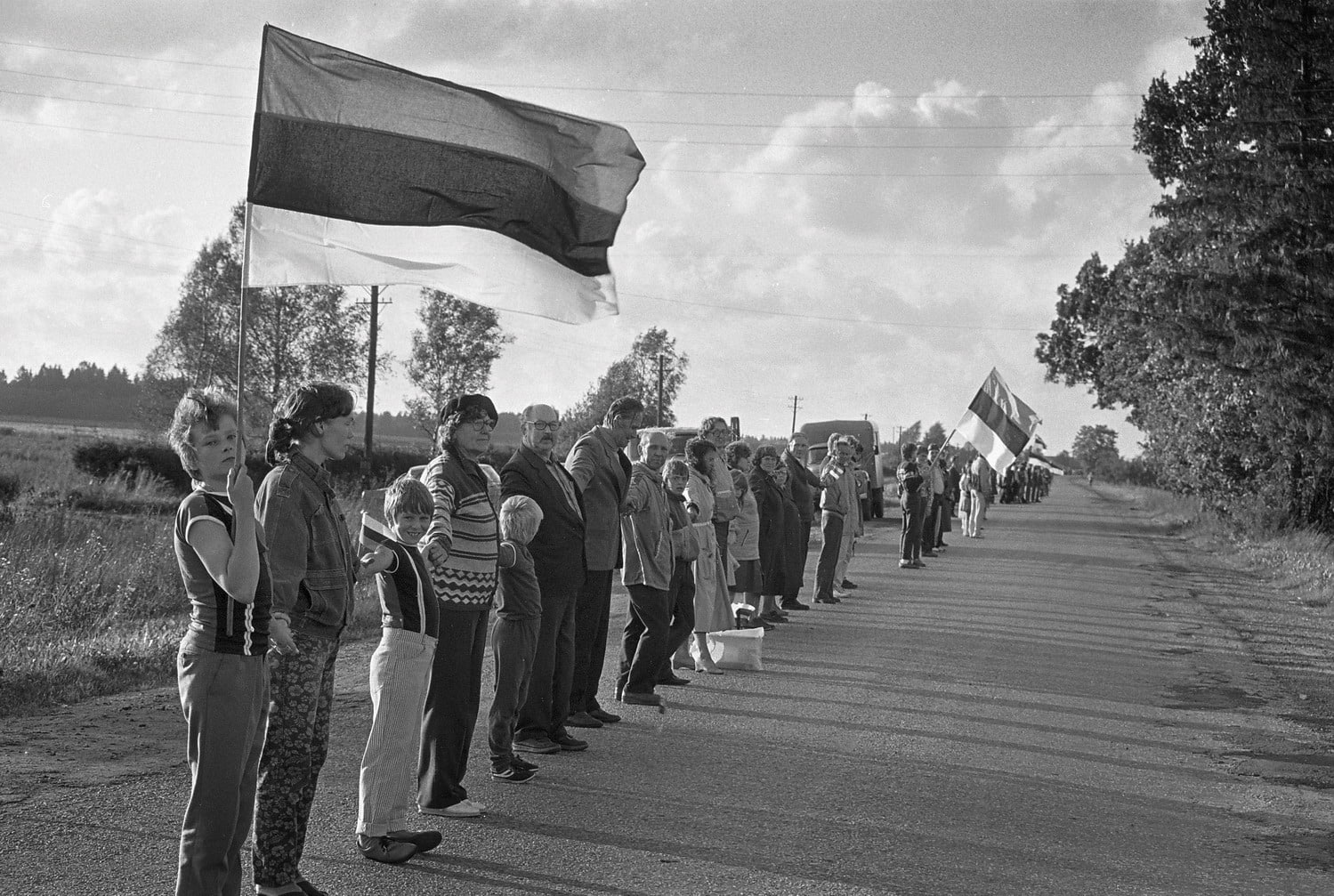Remembering the Baltic Way

On August 23, 36 years ago, an extraordinary act of peaceful resistance unfolded across Estonia, Latvia, and Lithuania. The Baltic Way was both a bold act of remembrance and a demand for freedom. This demonstration achieved what once seemed unimaginable: it forced the Soviet Union to acknowledge the secret protocol of the Molotov-Ribbentrop Pact and ultimately declare it null and void. Together, the Baltic countries declared to themselves, and to the world, that truth could not be silenced and independence was not lost forever. It was a turning point that transformed memory into action and gave voice to our nations long denied the right to speak.
The international impact of the Baltic Way was profound. Images of the human chain made headlines across the world, leaving no doubt about the scale and determination of our demand for independence. This peaceful resistance was impossible to ignore–ordinary citizens, without violence or provocation, exposing the illegitimacy and crimes of Soviet power. By capturing global attention, the Baltic Way strengthened our cause abroad, showing our unity in the belief in freedom, democracy, and shared values.
For Estonia, the Baltic Way was a decisive moment in our national awakening and a strong step toward the restoration of independence in 1991. By standing hand in hand, we showed the world that freedom was not just a dream, but the will of our people. The demonstration gave strength to the Singing Revolution and built the confidence that independence was achievable.
Generations in Estonia carry forward the vivid emotion and importance of the Baltic Way. Parents and grandparents tell their children where they stood on that day, shoulder to shoulder with our Baltic neighbors. Schools teach it as one of the most important chapters in our story of regaining freedom. Every Estonian has seen the image of the human chain stretching from Tallinn to Vilnius. The Baltic Way remains a powerful reminder that courage and unity can defeat repression, even when the smallest nations face the mightiest.
We also carry the memory of all who suffered and perished under totalitarian regimes. The mass deportations, repression, lost lives, and silencing of our people scarred thousands of families. Black Ribbon Day is commemorated for all those victims. We will never forget the crimes of totalitarian regimes and the sacrifices of earlier generations. And we will always stand for freedom, justice, and human dignity.
Today, as we celebrate the Baltic Way and commemorate Black Ribbon Day, Russia is waging its war against Ukraine for the third year. Just as the Baltic nations once faced forced incorporation into a larger empire, Ukraine now resists an aggression based on denial of its sovereignty and attempts to rewrite the past as well as dictate the future of another country. As we once relied on international recognition, solidarity, and support, Ukraine needs the same today.
In Estonia, Latvia, and Lithuania, we fought for our freedom and know it is never guaranteed. We continue to stand with Ukraine in their fight–for sovereignty, territorial integrity, the right to choose its future, and the pursuit of a just and lasting peace. As the Baltic Way once showed, the past must guide our action.
H.E. Kristjan Prikk is the Estonian Ambassador to the United States of America. All opinions are those of the author and do not necessarily represent the position or views of VOC.
Photo: The Baltic Way in Estonia by Jaan Künnap via Wikimedia under CC BY-SA 4.0.

